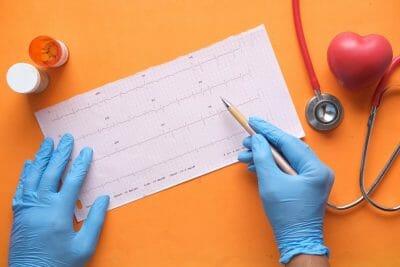Did you know that the third highest cause of death in the US is a stroke? These blood vessel ruptures or blockages in the brain can also cause long-term disabilities. However, if your loved one has had a stroke, he or she may benefit from physical therapy. Before you begin searching for physical therapy near me, this is what you should know.
Evaluation and Treatments
Within the first four hours after a stroke, a physical therapist should evaluate your loved one’s mobilization. Based on this information, bed-centric activities can start immediately. Then, within 24 hours, out-of-bed activities should start.
Recovering Balance
Many stroke victims experience difficulty balancing, which can increase their risk of falls. Therefore, balance exercises are common to increase limb control and posture. These exercises may include sitting balance using yoga balls as well as trunk exercises to strengthen the core and prevent falls. Standing balance activities are also included.
Helping You Recover Lost Strength
Many physicians encourage or prescribe physical therapy as early as 24 hours after a stroke. Immediately starting directed or intentional movements can reduce muscle and strength loss as well as rebuild strength for those who were unable to move for extended periods.
Strengthening the lower limbs also helps with balance, and much attention may be focused on your loved one’s ankles and feet.
Relearning Basic Muscle Movements
Strokes cause neurological trauma. They can affect speech, movement and memory. Therefore, one of the first things your loved one will work on with a Galloway physical therapy specialist is evaluating skill and movement loss. Then the therapists will plan a program that helps their patients regain their lost skills, including relearning basic muscle movements. These programs focus on basic muscle movements in the hands, arms, feet and legs.
Improving Motor Control
Motor control involves the ability to complete tasks that are timed or rhythmic. The use of auditory rhythms are used to time movements. Rhythm is especially important when walking. Physical therapists can also help your loved one by identifying and assessing his or her pain levels and creating treatment plans to manage it so your patient can get moving again.
If your loved one has difficulty with specific movements at first, such as walking, the therapists can order wheelchairs or fit braces that can provide added support. They will also teach your patient how to use any assistance devices they assign.
Improving Quality of Life
The goal of physical therapy is to improve your loved one’s quality of life. Therefore, the upper limbs will be a primary focus. Most stroke victims experience motor function challenges in these limbs after a stroke, which directly impacts their quality of life. They will also focus on task-oriented training, such as eating, writing and other tasks that require deliberate hand and finger movements, that are necessary for regular daily tasks.
Education
One of the best benefits you will receive from your loved one’s physical therapist is education. Not only do they teach their patients how to navigate their lives, but they also teach you how to help any family member that needs additional care.
If your loved one is struggling to complete basic tasks after a stroke, you can find mobility and hand therapy near me with specialized staff and a positive reputation.
